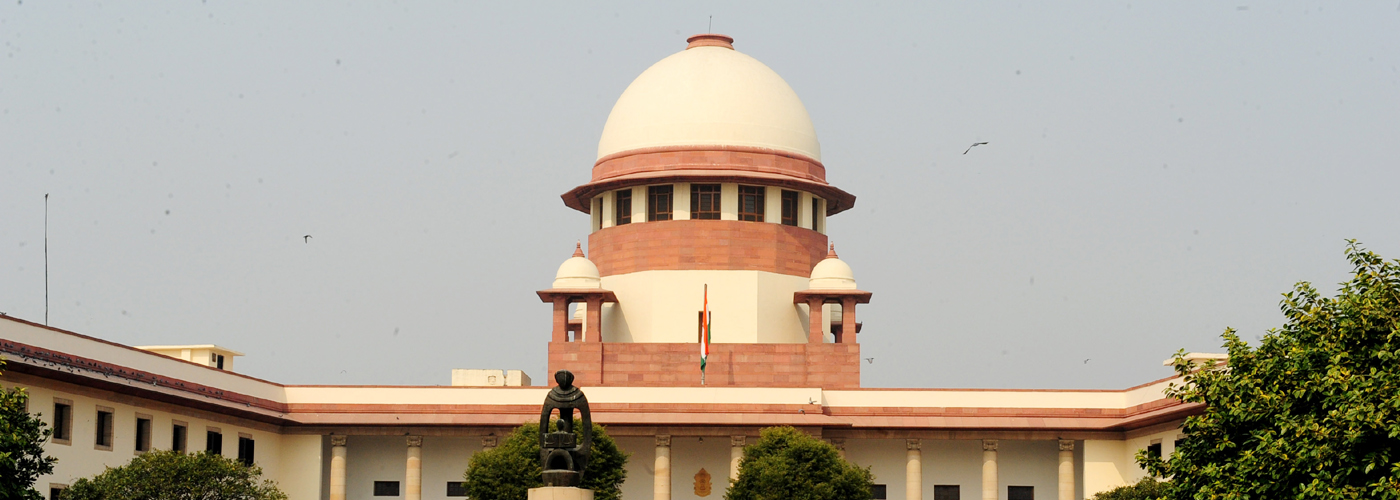TRENDING TAGS :
Sabarimala Verdict: SC opens temple doors for women of all ages
New Delhi: Supreme court of India has given its landmark verdict by lifting the age old ban which prohibits women from entering the Kerala's famous temple, today.
The Indian apex court was hearing pleas challenging the ban on entry of women between 10 and 50 years of age into the Sabarimala temple in Kerala.
A five-judge constitution bench headed by Justice Dipak Misra and other judges, Justices R.F. Nariman, A.M. Khanwilkar, D.Y. Chandrachud and Indu Malhotra pronounced its judgment on the centuries-old prohibition on women entry in Sabarimala temple.
ALSO READ: SC verdict on Ayodhya should be accepted by all: Congress
For centuries women who were said to be of menstrual age were restricted from entering the temple as its presiding deity, Lord Ayyappa, is considered to be a celibate. It was said that presence of women in the temple can distract their deity, Lord Ayyappa.
SC also ruled that "biological or physiological reasons cannot be accepted in freedom for faith."
Of the five judges in the constitution bench Justice Indu Malhotra presented her dissenting opinion. Thus, passing the judgment with a 4:1 majority.
"Prohibition can't be regarded as an essential component of religion. Women is not lesser or inferior to man. Patriarchy of religion cannot be permitted to trump over faith," said CJI Misra.
SC also said we can not discriminate between man and woman on the bases of gender. On one hand we worship woman on the other hand we discriminate with them. This kind of attitude should be change.
Justice Rohinton F. Nariman in a separate but concurring judgment said that people of all faiths visit the temples. Worshipers are not of separate denomination.
"Religion cannot become a cover to exclude and deny women their right to worship," Justice D.Y. Chandrachud also said in a separate but concurring judgment.
Holding that the Sabarimala temple is not a denominational temple peculiar to any sect, the court said that the Ayyappa temple belongs to Hindus and does not constitute a separate entity.
The apex court also read down the provision of Kerala laws that protected the practice of prohibiting the entry of women in the age group of 10 to 50 years.
Justice Indu Malhotra said,"What constitutes essential practices of religion is to be decided by worshippers and it is not for the judiciary to adjudicate.
"It is not for courts to decide if such practices should be struck down. Rationality cannot be used to judge faith. All followers must be allowed to follow their own faith as per their own beliefs in a secular polity.
Some landmark statements of SC judges in Sabarimala Verdict:
- It is not for the court to determine to strike down customs
- Religious customs can be tested on the basis of Article 14
- Religious practices are protected under the constitution
- If a person has faith on certain deity it has to be respected
- Court shouldn't interfere with religious faiths
- "Religion cannot become a cover to exclude and deny women their right to worship," Justice D.Y. Chandrachud said in a separate but concurring judgment.
- Balance needs to be struck between religious beliefs on one hand and cherished principles of non-discrimination and equality laid down by Constitution on the other
- In earlier days prohibition was because of nature and the notion of women are weaker sex
- Justice Rohinton F. Nariman in a separate but concurring judgment said that people of all faiths visit the temples -- worshipers are not of separate denomination.
- "All devotees are equal and there cannot be any discrimination on the basis of gender," Misra said.



